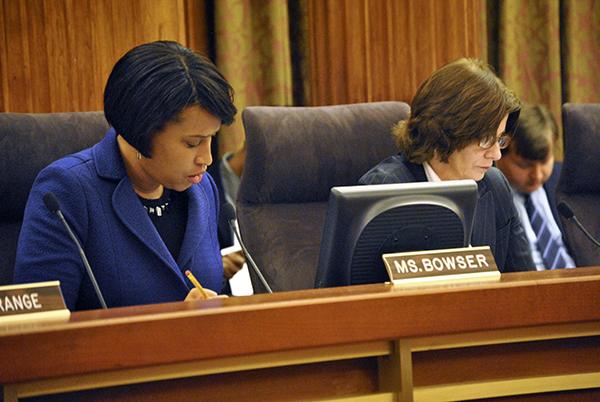A GW Law School professor is helping struggling D.C. residents keep cool in the city during heat waves.
Mary Cheh, who is also a D.C. Council member from Ward 3, passed emergency legislation last week prohibiting the Potomac Electric Power Company, or Pepco, from shutting down a resident’s power during heat waves. The power utility would not cease services the day before, the day of or in any part of a sequence of days with a predicted temperature of more than 95 degrees Fahrenheit.
“The idea is to protect them and give them some breathing space,” Cheh said in an interview. This is the fifth year in a row she has passed a similar emergency bill.
Cheh said she passes a Heat Wave Safety Emergency Amendment Act, which stays in effect for 90 days, every year at the beginning of the summer. She said the emergency bill would be “the mirror” for a city law stating that the power company cannot shut off power service for 24 hours when the temperature drops below 32 degrees.
Last summer, D.C. had an unusually low number of extremely hot days compared to other years, with 24 days when the temperature rose to 90 degrees outside or higher. Over the past decade, on average D.C. has about 44 days a year that are above 90 degrees, according to the Capital Weather Gang.
She said that more people are injured in the heat than from extreme cold, citing information from a press release that 10 times as many people die from the heat compared to from the cold each year in the United States. Both the hot and cold temperatures pose a problem to members of the homeless population and those who don’t have the money to turn on heat and air conditioning in their homes, Cheh said.
Marina Streznewski, president of the Foggy Bottom Association, said the high cost of living in Foggy Bottom causes residents to be hesitant about using their heat and air conditioning in order to save money but she doesn’t hear of many cases of people having their power shut off. She did say that it is a huge concern in other parts of D.C. where more low-income people live.
“There are lots of places in the city where that’s a challenge,” Streznewski said. “One of the issues is finding the money to pay for it. That’s always the challenge.”
A person is at risk for a heatstroke when the temperature rises above 104 degrees and could possibly result in damage to the brain, heart, kidneys and muscles according to the Mayo Clinic. Children and adults over 65 years are at an increased risk because their central nervous systems are not fully developed or may have deteriorated.
Cheh said the high populations of children and elderly residents in D.C. makes her bill even more important.
Cheh’s emergency law does not require Pepco to return power to homes where the power was already lost by the day of the extreme heat. It also does not ban the power company from taking away heat to the house if the temperature drops below room temperature on the same day of the predicted 95 degrees.
“It’s not telling people that they don’t have to pay their bills,” she said. “It’s somewhat modest in that sense.”
A representative from Pepco Holdings did not immediately respond to requests for comment.
The city’s Homeland Security and Emergency Management Agency takes other precautions to try to protect some of the more needy residents from extreme heat in the annual Heat Emergency Plan. When the temperature reaches 95 degrees or higher, the city implements designated “cooling areas” around D.C. for specific groups such as the elderly, members of the city’s homeless population and those living in public housing.
There are also three locations for general public cooling centers around the city during the weekdays, including one in Ward 2, which includes Foggy Bottom.








